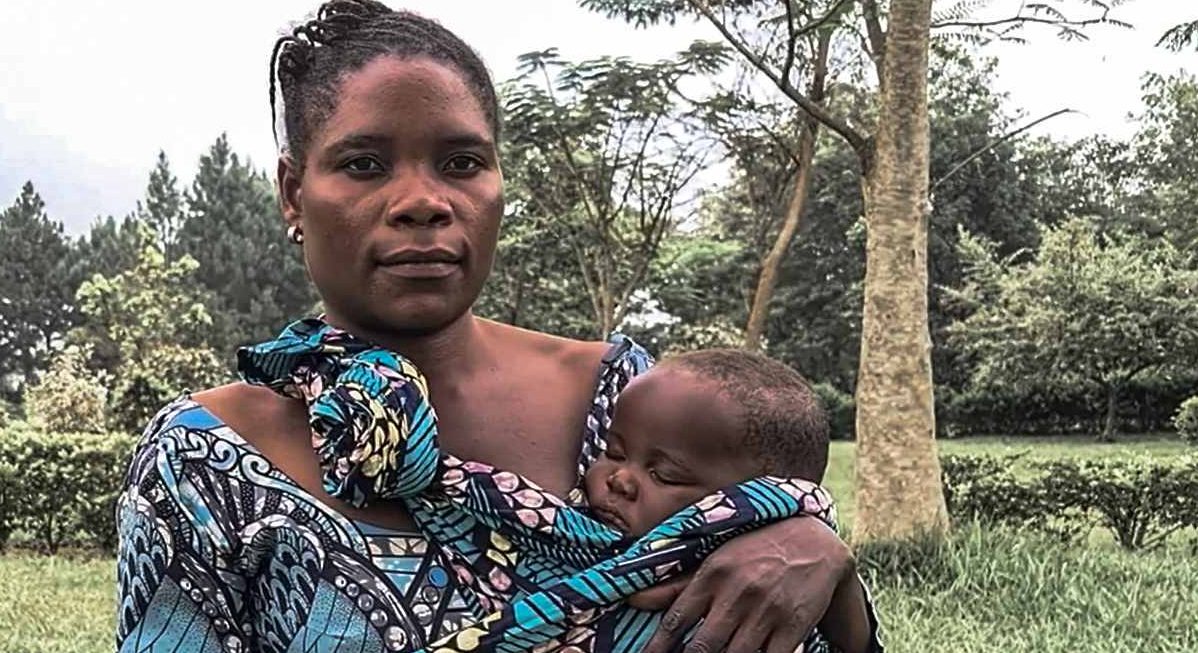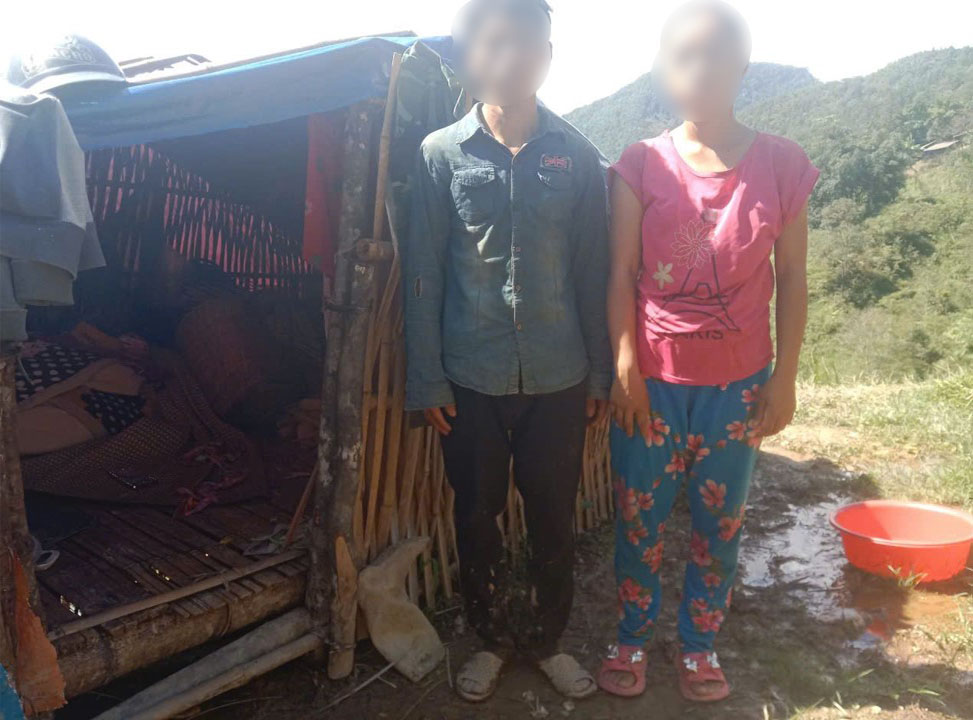
Two Christian Families Kicked Out of Their Village in Northeast Vietnam
Two families from different villages in Northeast Vietnam were kicked out of their homes in July and August 2024 because of their conversion to Christianity.
Giang* (31) lives with his wife and 4-year-old daughter. Nhat* and his wife are also in their early thirties. They the only Christian families in their villages.
Giang’s family first came to church as he navigated his illness. They trusted God to help them overcome the obstacles that they were facing and have found peace in trusting Jesus. God healed Giang and brought Christians from a neighboring village to his aid.
Nhat and his wife met with other believers at a local church to worship, pray, and study the Bible – but the village chief (and even Nhat’s family) were afraid of what the couple believed in. They prohibited them from sharing the gospel for fear that they would anger their gods.
In the span of a month, both Giang and Nhat were confronted by authorities, including neighbors and relatives.
Both families were told that if they recant their newfound faith in Jesus, they will be allowed to stay in the village. If they continued to follow Him, they would be exiled with none of their belongings. Given the transformation they already seen through Christ, they stood strong in their faith.
Now, these two families reside in temporary shelters in different villages with the help of local churches. Giang’s church built him and his family a small house. Nhat’s family now lives in a makeshift tent in the forest.
The churches of both families carry on encouraging them by praying for them. They give them food, blankets, and other supplies. But material resources are limited. They need us, their brothers and sisters in Christ, to keep them in our prayers.
Please join us in praying for the families of Giang and Nhat. Please pray for:
- Safety and provision for both families.
- Their faith to remain steadfast in the Lord.
- Protection, wisdom, and favor in acquiring a permanent residence.
- Abatement of anger towards Giang and Nhat and their families from the village chiefs, neighbors, and relatives.
*Names changed for security reasons.
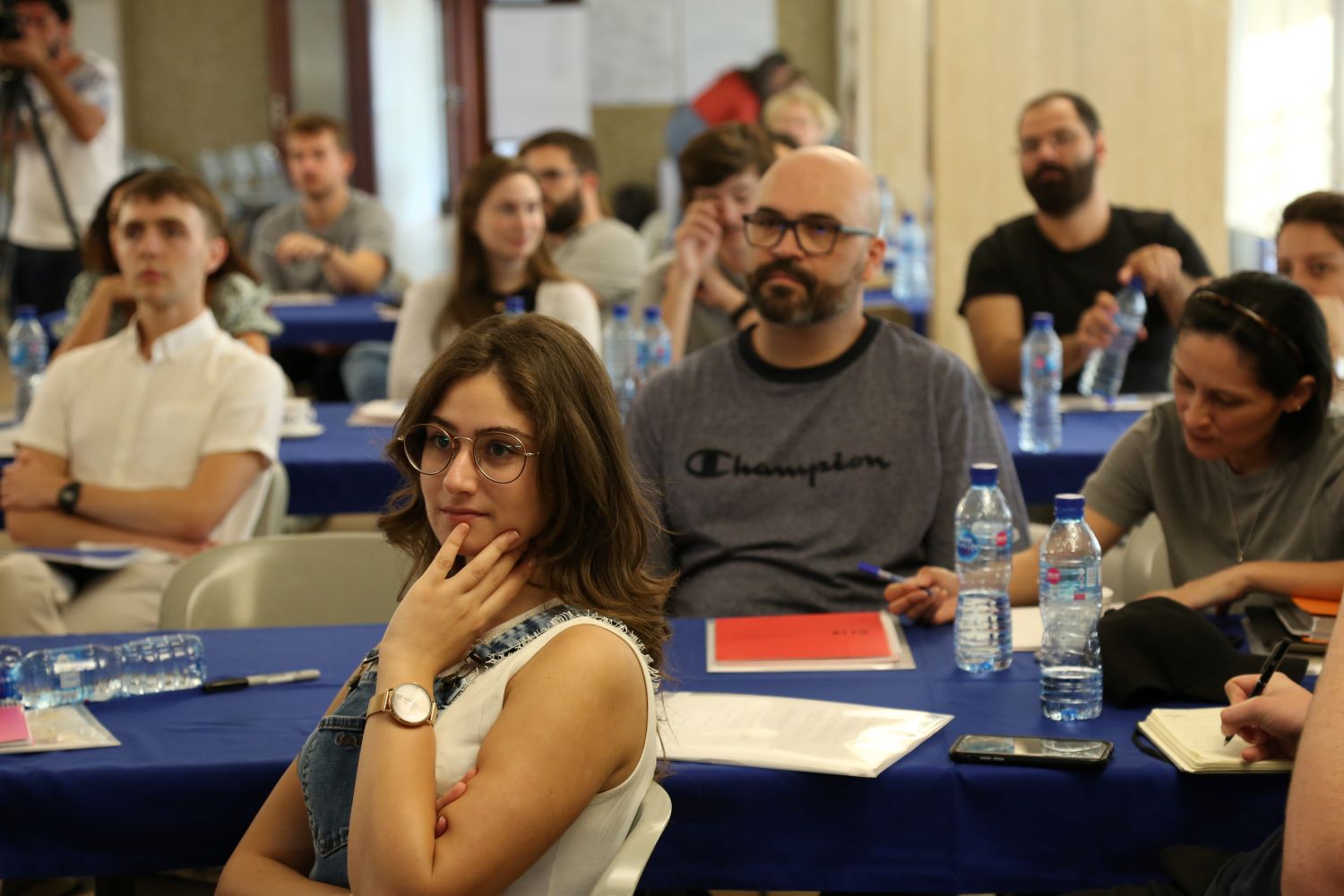
Christian Youth Connect Through Global Conference
‘Here, we feel human again.’
Open Doors recently supported a three-day conference that bought together Christian youth from around the world for a time of sharing, learning and engaging together. For their safety, we can’t tell you exactly where the conference was held as some of the attendees were from the Middle East and North Africa where faith makes them targets for persecution and discrimination.
We welcomed thirty-six participants who experienced fellowship with other believers, providing them a rare opportunity to worship and pray as one Body of Christ.
“I really enjoyed my time in this conference as we all met together as Christians from around the world to share our struggles, problems, point of views and try to help each other think of solutions,” shares Sarah.
“It’s beautiful to be here and see the youth come together and share experiences and knowledge,” shares Marla, a young believer from South America. “Praying and worshipping together were precious moments. It’s encouraging. I thank God for this opportunity.”
In its third year, the conference’s theme was “Make Hope Last”, with a focus on training young people in advocacy, Christian leadership, and the importance of being a prophetic voice in their community.
I really enjoyed my time in this conference as we all met together as Christians from around the world to share our struggles, problems, point of views and try to help each other think of solutions.
Sarah, participant
Many young people shared about their challenges in their education journeys, the pressures at work, difficulties from the community and society that surround them, and pressure from their churches, their families, and themselves.
“This sense of community is beautiful,” says Carlo, a Christian from Spain. “My time here brought to life the stories that I had read before. I saw my brothers and sisters face to face, met them at a deeper level, ate dinner with them, played with them, hung out with them and in the midst of their suffering, they share that there is still hope.”
Many attendees said their peers are turning away from the church, driven by sensitive topics that remain unaddressed within its walls. Issues like sex before marriage and drug use are often ignored, leaving young people feeling abandoned and misled by alternative sources like social media. The youth suggested that the church must have biblical discussions about these crucial topics to counteract misinformation and provide a guiding light.
The trauma inflicted by the intense pressure on Christians calls for the urgent need for dedicated rehabilitation and psychological support centers to safeguard the mental health of the younger generation.
The problems are significant, but the 36 young believers who attended the conference are not deterred. Through mutual prayer, support and encouragement, the youth envision a revitalized church that addresses their concerns, embraces their realities, and stands as a beacon of hope wherever it may be.
Some of my new friends that I met here shared their stories with me. Some were left out, some were bullied and discriminated, and many went through the trauma of losing loved ones. Yet despite all this, they remain faithful in their journey with the Lord. Let’s pray that they will remain hopeful and know that they are not left alone.
Yolande - Sweden
At the end of the three days, the young people had encouraged each other in faith, built connections with each other, dreamed, planned, and worked together. All the participants will continue meeting regularly online to build on what was started in the conference.
“My time here was a great privilege,” says Milad, a believer who lives in a country in the Middle East/North Africa region. “It’s important that the connections we build here continue afterwards…as we continue what we started here together.”
Please continue to lift up Christian youth around the globe in prayer.
We can pray this prayer with Lydia, from Palestine, who writes:
Heavenly Father, our source of love and compassion, we lift our hearts to You.
We lift all our pain, suffering and anxiety to You. Replace those feelings with your Holy Spirit. Heal our wounded hearts, especially the youth of the Middle East. Bring peace to the region. Comfort the grieving hearts. Bring hope to those who feel lost and forgotten. Guide us all to Your loving heart. We love and adore You always and forever.
We pray this in Your holy name, Amen.
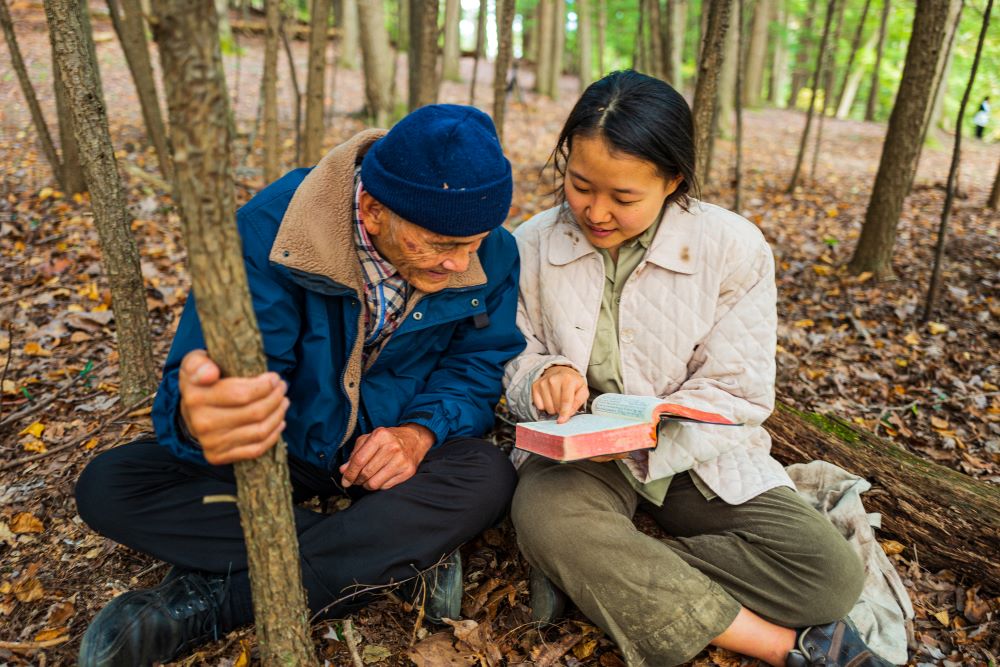
7 Scriptures North Korean Christians Cling To
In North Korea (No. 1 on Open Doors World Watch List) where Christians are considered a “hostile class,” owning a Bible is illegal.
Despite the fact that having a Bible in your possession can be the “evidence” needed to arrest and imprison someone (and their family) for following Jesus, North Korean secret Christians continue to take that risk. We hear stories of how they carefully wrap Bibles in plastic and bury it, bringing it out only at night, with the curtains drawn, speaking in whispers.
Here are seven especially poignant Scriptures that have specific meaning to the North Korean secret church.
1. ‘If I perish, I perish.’
Go, gather together all the Jews who are in Susa, and fast for me. Do not eat or drink for three days, night or day. I and my attendants will fast as you do. When this is done, I will go to the king, even though it is against the law. And if I perish, I perish (Esther 4:16).
Queen Esther had to ask the king for a favour, which meant risking her life. She fasted and asked others to do the same. She was content knowing that sacrificing her life to follow God and do what she could to save her people was worth it.
North Korean Christians understand that as well. Despite immense hardships and inhumane conditions, North Korean Christians strive to remain faithful. One North Korean believer said: “This is our pilgrimage, and we walk it unwaveringly. We can because we’ve inherited the faith from our ancestors, who lived by Queen Esther’s creed: ‘If I perish, I perish.’ This creed is deeply embedded in our lives. We thank you for standing with us.”
2. ‘The Lord is my shepherd.’
“The Lord is my shepherd, I lack nothing .”(Psalm 23:1).
Before he became a warrior and a king, the author of this familiar Psalm was a shepherd. Alone in the wilderness tending his family’s sheep, David learned to trust the Lord for everything, just as his flock had to trust him.
North Korean believers know that God leads and is watching over them and only He tends to their needs. In Him, they lack for nothing. While she was in prison, North Korean believer Hea Woo* woke up every morning and spent time reciting Psalm 23.
“Despite the circumstances, despite the terrible place and pain I was in, Jesus was my shepherd,” she said. “One day, He would lead me to green pastures. One day, I would sit at His table while my enemies watched. Now, He was leading me through a valley of death.”
3. ‘When you pass through the waters, I will be with you.’
When you pass through the waters, I will be with you; and when you pass through the rivers, they will not sweep over you. When you walk through the fire, you will not be burned; the flames will not set you ablaze (Isaiah 43:2).
Through the prophet Isaiah, God spoke to the people of Israel about the judgment that awaited them for neglecting Him and their unwillingness to repent. But God also promised them restoration once they turned back to Him. He said that the waters wouldn’t sweep them away. Because God was with them.
The prophet’s words here are especially poignant and relatable to North Korean Christians, especially when thinking about “passing through the rivers.” All North Koreans know that to escape the country, they must cross water. Over the last 30 years, thousands of Christians have made their way into bordering countries, often looking for jobs to buy food—no doubt, with every step, clinging to Isaiah’s words.
4. ‘I am sending you out as sheep among wolves.’
“I am sending you out like sheep among wolves. Therefore, be as shrewd as snakes and as innocent as doves.” (Matthew 10:16).
Jesus warned His disciples, telling them they would encounter wolves—and that they needed to act prudently. He goes on to say in verses 17-18: “But beware of men; for they will hand you over to their councils and flog you in their synagogues. On My account, you will be brought before governors and kings as witnesses to them and to the Gentiles.”
In North Korea, Christians know they’re at risk of imprisonment and even death by the regime because they follow Jesus and their allegiance is to Him. They know that anyone can be a betrayer; neighbours—and even family members—can turn into wolves. From Jesus, they must learn to live faithfully in their difficult surroundings.
"When you pass through the waters, I will be with you."
5. ‘Go in peace.’
“Go in peace,” Elisha said (2 Kings 5:19a).
After the Syrian commander Naaman (an enemy of God’s people) visited the prophet Elisha for healing and God cured his leprosy, Naaman wanted to follow God and no longer bow to idols. But he told Elisha that back in Syria, he had to accompany the king on his visits to the temple and bow with him to the idols the king worshiped. “May the Lord forgive your servant for this,” Naaman said. Elisha’s response was understanding and simple: “Go in peace.”
Our North Korean family can find themselves with the same dilemma, especially in public spaces. If they want to live, they must show honour to the leaders, part of the ruling Kim dynasty. Reportedly, the country has at least 35,000 large-scale statues of the Kim dictators (both past and present), and every North Korean is expected to bow to them. Every North Korean is required to hang portraits of the country’s leaders and former leaders.
North Koreans find comfort in Elisha’s response to Naaman. They bow out of necessity, not out of worship.
6. ‘In the beginning God created the heavens and the earth.’
“In the beginning God created the heavens and the earth. Now the earth was formless and empty, darkness was over the surface of the deep, and the Spirit of God was hovering over the waters.” (Genesis 1:1-2).
After the Israelites escaped Egypt, the first thing God wanted them to know was that He—not any Egyptian gods—was their creator. North Korea is officially an atheist country. From an early age, North Koreans are indoctrinated, learning that the world and humanity were created with no input from God.
This first verse of the Bible is often a starting point for (secret) conversations about the Bible and the gospel among North Koreans. If someone accepts that God created the universe and that people are created in the image of God, they are much closer to believing other truths of the Bible.
7. ‘He will wipe every tear.’
“He will wipe every tear from their eyes. There will be no more death or mourning or crying or pain, for the old order of things has passed away.” (Revelation 21:4).
In the book of Revelation, John recorded his vision of a new heaven and a new earth (Rev. 21:1). He saw a beautiful city descend from Heaven: the Holy City, the new Jerusalem. And in his vision, he heard a “loud voice from the throne” declaring that all things are made new.
Our sisters and brothers in North Korea live with great expectation and hope, clinging to this verse and the beautiful vision John describes. In many real ways, the hope of the Kingdom is their food and sustenance. They know and trust—and remind us—that the brokenness of this world is temporary; that one day, their suffering will end. They don’t live for the city of Pyongyang. They live for the New Jerusalem, where there will be no more death, grief, crying or pain … where God will wipe every tear they’ve wept and make everything new.
Pray
Take time today to pray these verses with your North Korean family, remembering the reality and risks they face every day, as well as the significance of these scriptures in their lives and your own.
Simon Lee reminds us: “We hope that Christians around the world don’t cease to pray for North Korea. If we don’t pray, it means we have given up hope.”
Pray that each believer would remember and trust that they have a shepherd who watches over them and that one day, God will make all things new.
Through secret networks outside North Korea, Open Doors secret workers are helping around 100,000 North Korean believers by providing vital food and aid, shelter and discipleship training for North Korean refugees at safe houses in China, and training through Christian radio broadcasting from outside the country.
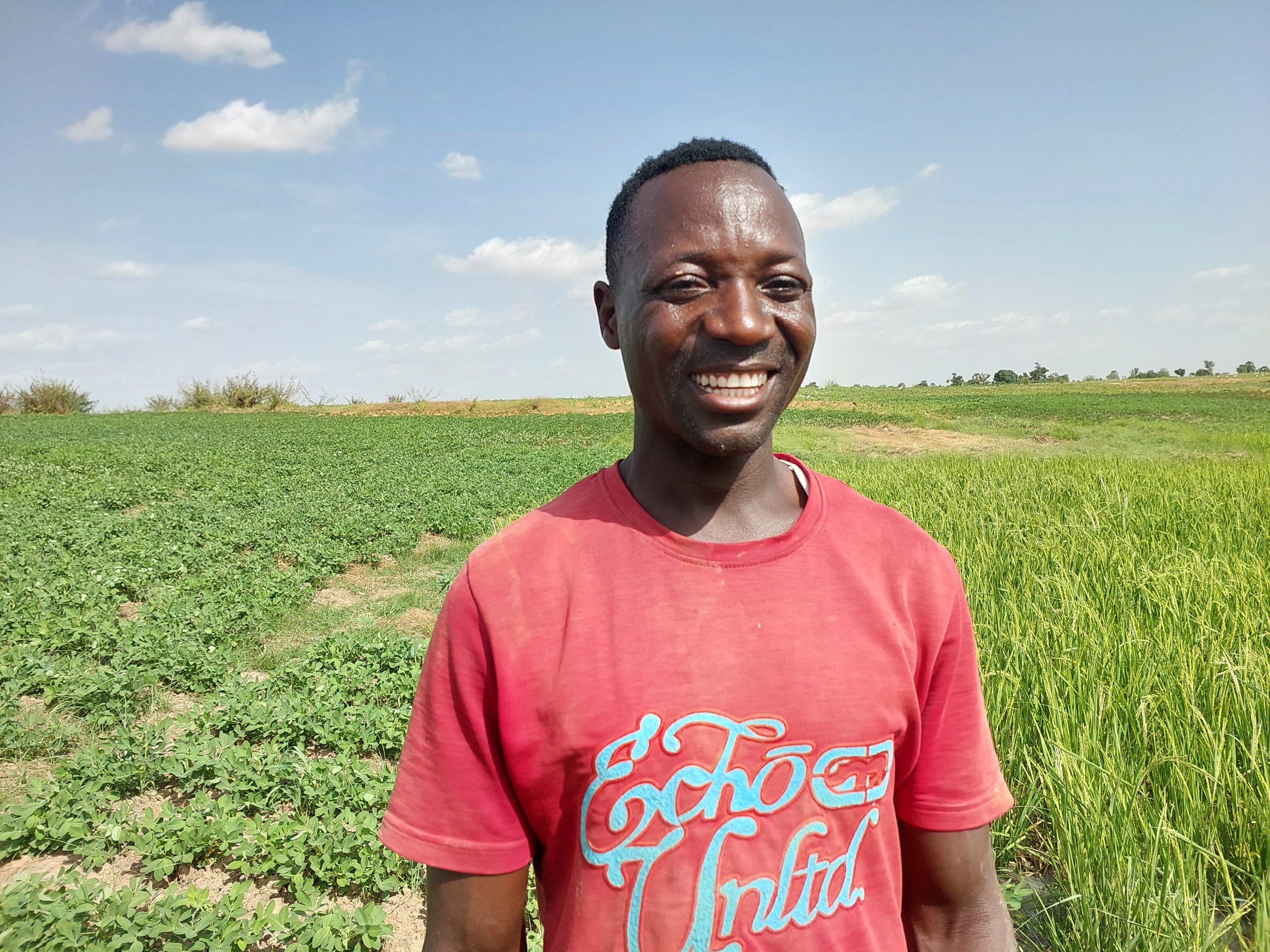
Helping Nigerian Christians Increase Their Harvest
In Kano State, Nigeria, Christians are a minority.
This part of the country sees frequent incidents of persecution, in particular the marginalization of indigenous Christians. One sad result of this is that Christian communities are less likely to receive government support and incentives.
Last year, Open Doors partners had the chance to support Christians in this area of Nigeria. They came alongside 150 farmers and provided them with irrigation machines to support their farming activities during the dry season.
“Because we don’t have irrigation machines, we must borrow them from our Muslim neighbours whenever we farm during the dry season. When they see that our crops are coming up well, they collect back their pumping water machines and we are forced to harvest our farm produce earlier than is expected. This leads to very low yield”, said Abdu*, one of the recipients, on the challenges he faces as a Christian.
Open Doors provided 150 Christians in Kano state with irrigation machines to help them pump water to their farms. Thanks to the machines, the Christians enjoyed a successful harvest this year.
"There is nothing we can say other than thank you."
Abdu, Nigerian Christian and recipient of an Irrigation Machine
“In the past years, I could hardly get between 15 to 20 bags of onions but this year I harvested 40bags of onions and my rice and groundnut (peanut) on the farm is coming up well,” Abdu shares.
“My ground is very good, I am seeing it and I’m admiring it, and I am happy. And my rice has started producing seed… there is nothing we can say other than thank you.”
Your support means that Abdu, and many other Christians, can stand firm in their faith amid the persecution they face on a daily basis.
“We have faith that Jesus is the way the truth and life…because of that, no matter the pain, or prosperity or marginalization that we face, we have already depended on Him. Because God’s Word says, we are not of the world, if we were, the world would have loved its own.”
“May God continue to increase you so that you will continue to understand what is happening to us. Because by doing this you are strengthening us in our faith in Christ. May God continue to prosper you in the knowledge of Christ.”
Strengthening the Nigerian Church
Open Doors has been involved in Nigeria for thirty years. The goal is to see a church that is holistic in its mission, responding to emerging persecution trends and becoming visible in the political and socio-economic space through:
– Persecution preparedness training and support
– Economic empowerment
– New believer care
– Discipleship
– Mobilization
Pray that God will continue to bless and prosper these Christian farmer so that they may be salt and light in their villages.
Pray for good relationship with Muslim farmers so Christians can live peacefully with their families.

Because he is a Christian, Emin’s house was burned down.
A Christian and Church leader in Central Asia, Emin’s house was burned down when locals learned of his faith.
Photo: A village in Central Asia
Five years ago, Emin* became a Christian.
In the time since, he has faithfully worked in church ministry, leading the house church in his village and travelling to more remote areas to share the Gospel.
Despite a surgery that limited him physically, he has never ceased in his efforts to encourage the local church.
It was about two months ago that a group of young men from the region came to his home and asked him about his work. “We learned that you became a sectarian and pull other people into your sect. Is that true or not?”
Emin took the chance to talk about his faith. He pointed out that the Quran talks about Jesus and explained Christ’s sacrifice for the sins of humanity.
He was told to stop practicing his faith, and then the group left his home. For a time there were no further incidents.
Sadly, in early August Emin’s house was burned to the ground, with the fire caused by lit gasoline. By God’s grace the house was empty at the time.
Emin asked around, and witnesses said they had seen young men climbing over the fence into the yard.
Upon reporting to the police, Emin was told that the fire was his own fault, and that he should stop talking about the Gospel.
Although Emin is being cared for by church members, he is currently suffering shock and anxiety about the loss of his home. He is also worried for the safety of his family.
Please be in prayer for this dear brother today.
How to pray
Pray that Emin and his family are given peace of mind, and know that God remains with them.
Pray that a new place to live is provided.
Pray that the authorities seek justice in this situation.
Pray that Emin’s faith remains strong in the face of persecution.
*name has been changed for security reasons
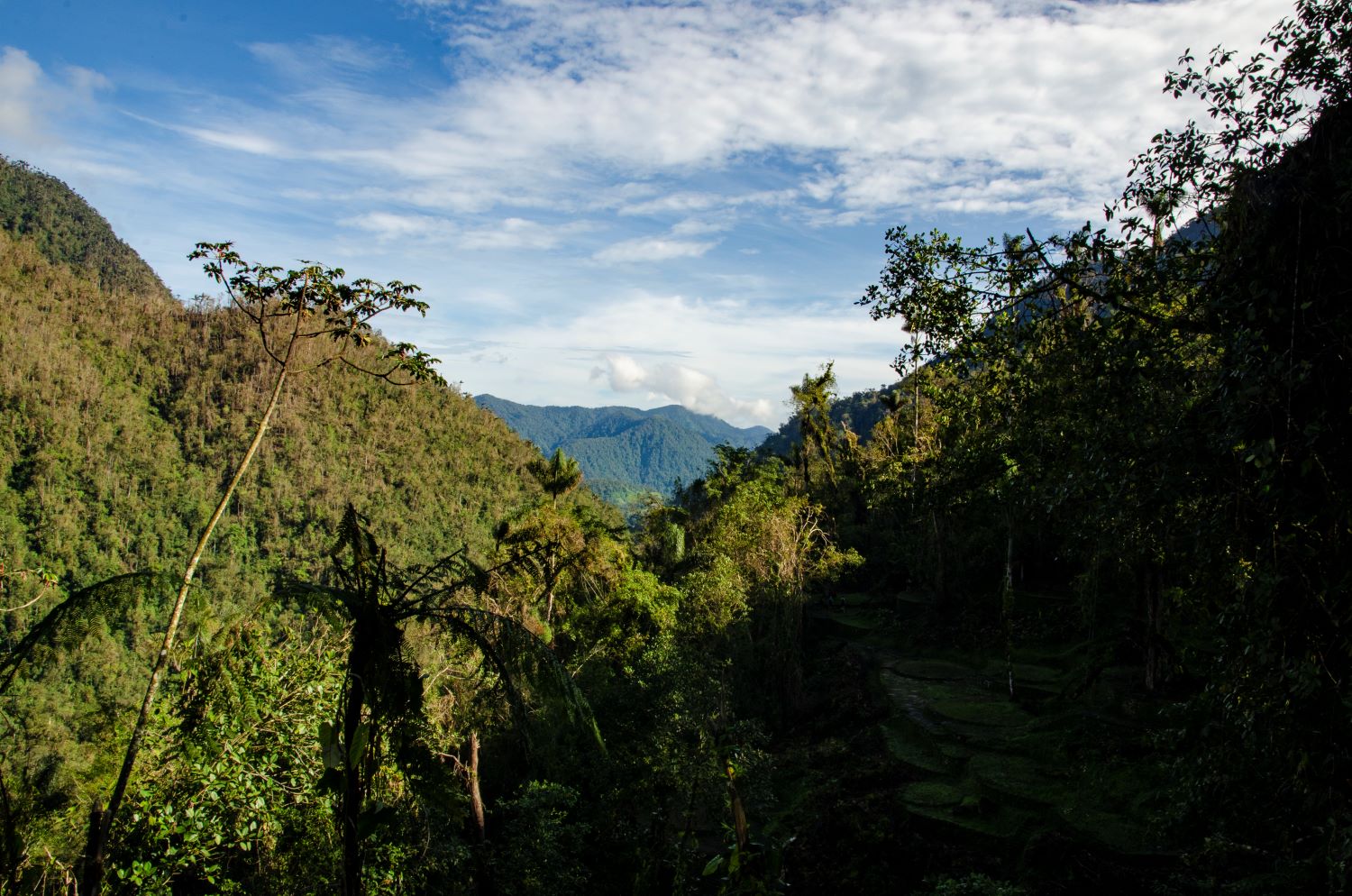
A Visit to the Persecuted Church in Colombia
Earlier this year, Open Doors workers had the chance to visit the Church of La Palestina – the only visible church in the region of Sierra Nevada de Santa Marta, Colombia. There, they met the church, prayed together and heard some of the testimonies of this resilient church in the middle of a place where indigenous Christians are persecuted for their faith.
Pastor Abraham* said that it was the first time in more than 20 years that foreigners had been able to visit. More than 40 kilometers inland, this place is the only refuge Christians have in the middle of the Sierra Nevada de Santa Marta – a large area that stretches across the departments of Magdalena, Cesar and La Guajira – where Christians are not welcome.
Equipped with suitcases, cameras, and camping equipment on their shoulders, the Open Doors support team (they were not from Canada) embarked on a seven-day journey to visit the persecuted Church in the Sierra.
After an hour’s flight from Bogotá to Santa Marta, six hours by car to the middle of the mountains, and eight hours on mule, going even further up the mountains, passing rivers, cliffs and plains, the group arrived in the territory where the Church of La Palestina was waiting for them with joy. The church was celebrating its week-long annual meeting, where Christians from all over the Sierra and the surroundings came to celebrate Jesus and strengthen their faith.
Pastor Abraham said, “This meeting is one of our strategies to stand firm, because the challenges we face as a church are many”.
Around 80 people attended the meeting. Some came from other communities in the Sierra, four, five or even seven hours away, but the long journey was worth it because it was one of the few opportunities for communal worship.
The following days were filled with sermons, prayers, and worship from 5am to 10pm. Although many came with personal or family requests for health or provision, the common prayer was the same: for their families, their communities, and for Christians in other areas who cannot live their faith freely.
The journey to the Church of La Palestina included a one hour flight, six hours by car, and eight more on mules.
Persecuted for Jesus
During the trip, the team met several Christian families who came from one of the more traditional communities in the region, where Christianity is punishable by law.
Dozens of Christians have come from all over the Sierra, hidden from their communities or with a made-up excuse, to hear the Gospel. “Many have to say that they are going to work, to buy something or to visit a family member so that their communities do not get suspicious,” said Lucas, a Christian and indigenous missionary.
The risks that these underground Christians run when they go to these kinds of meetings are extremely high.
“In our communities, they want us to follow and believe only in our culture, and if we don’t, we will be persecuted. They scold us, punish us, lock us in the ‘house of reflection’, and then, if we continue, they say: ‘if you don’t give up, you have to leave the territory’,” says David, a Christian from the Sierra.
David has lost contact with some members of his family because of Christianity. “I’m not close to my brother, nor to my sister, and I’m estranged from my brother-in-law. Because you preach the Gospel, you are no longer considered part of the family. And because you preach, you also lose the right to work in the community. I no longer have the right to work because, as a Christian, I have lost their trust,” he adds.
However, David maintains his faith in Jesus. “I came here because I have hope. Now it is very difficult to be a Christian here, and sometimes we have to follow what the mamos (religious authorities) say to avoid problems and persecution. But I know that God answers. And I am still waiting for that,” he adds.
"Because you preach the Gospel, you are no longer considered part of the family. And because you preach, you also lose the right to work in the community...but I know that God answers."
David, Colombian Christian
His story is not an isolated one. Many other Christians who came to the meeting shared similar stories of being rejected by their families and communities because of their faith in Jesus.
Martha is a Christian woman who was abandoned and beaten by her husband for not renouncing the Gospel: “He told me that he did not like the fact that I was a Christian and that he was going to leave me, but I said, ‘the Lord will decide what to do with me. I will seek Him; I want to be His friend'” she says.
“I ask you to pray for our families so that they come to know the Lord and for our churches, because the mamos are working against the church so that we stop following the Lord. They are working for that.”
A persecution that never ends
Back in 2001, the mamos forcibly expelled Christians from their community, with the help of illegal armed groups who supported their cause in exchange for indigenous youth to join their ranks.
Abraham recalls this. “The guerrillas came to the community and told us that we had to leave the same day. ‘There is enough land here to bury people’, they told us. This scared us so much that we had to leave that place.”
For more than five years the Palestina church remained displaced until 2006, when the agreement between the guerrillas and the mamos was broken and the guerrillas stopped pressuring the church. In 2014, the pastor and his family returned to the region to take over the leadership of the church, which was gradually rebuilding itself.
“Now they no longer attack the Church as they did before. Now they are attacking us spiritually, with witchcraft… that is why there is a lot of disorder and poverty in the Church, and some Churches are finished because the attacks have succeeded. Some people may not be turning away from God, but they are falling into sin and the church is spiritually defeated.”
Colombian Christians were able to spend time in worship, along with prayer times and preaching.
Dreaming for the future
Despite the persecution, the Church of La Palestina is not giving up on evangelizing. “The development of the church has been through prayer, fasting, vigilance, walking to pray for the region, praying for protection for our families and our crops, and tithing. We have seen that this works, because if you had come 10 or 15 years ago, the situation would have been different,” says Pastor Abraham.
The visit by the Open Doors team set a historic precedent for La Palestina church. “Many brothers and sisters have come and told me, ‘This is very good, the Lord is speaking a lot to us,’ and we have many projects to carry out to continue fulfilling the Christ’s mission here in the Sierra” says Abraham.
In the future, the Church wants to carry out an evangelization project specifically, in the nearby traditional regions that are more hostile to Chrisitanity. It will be based on strategic visits and spaces to strengthen the brothers and sisters who live in the community.
“In the Church we have said: if we have help, we will do evangelization, but if we don’t, we will do it anyway, because at the end of the day, it is our commitment to God. We are going to do it, whatever the costs, because Christ is coming soon and there are so many people who are dying without knowing the Gospel. But of course, sometimes it is better to give a little push to get things done,” adds Pastor Abraham.
Pray
Abraham asks for prayer. “Pray for us that we will remain in the faith, that the Lord will sustain us and give us the strength and wisdom to continue sharing the Gospel and that many more indigenous people will come to know Jesus.”
*all names in this story have been changed for security reasons.
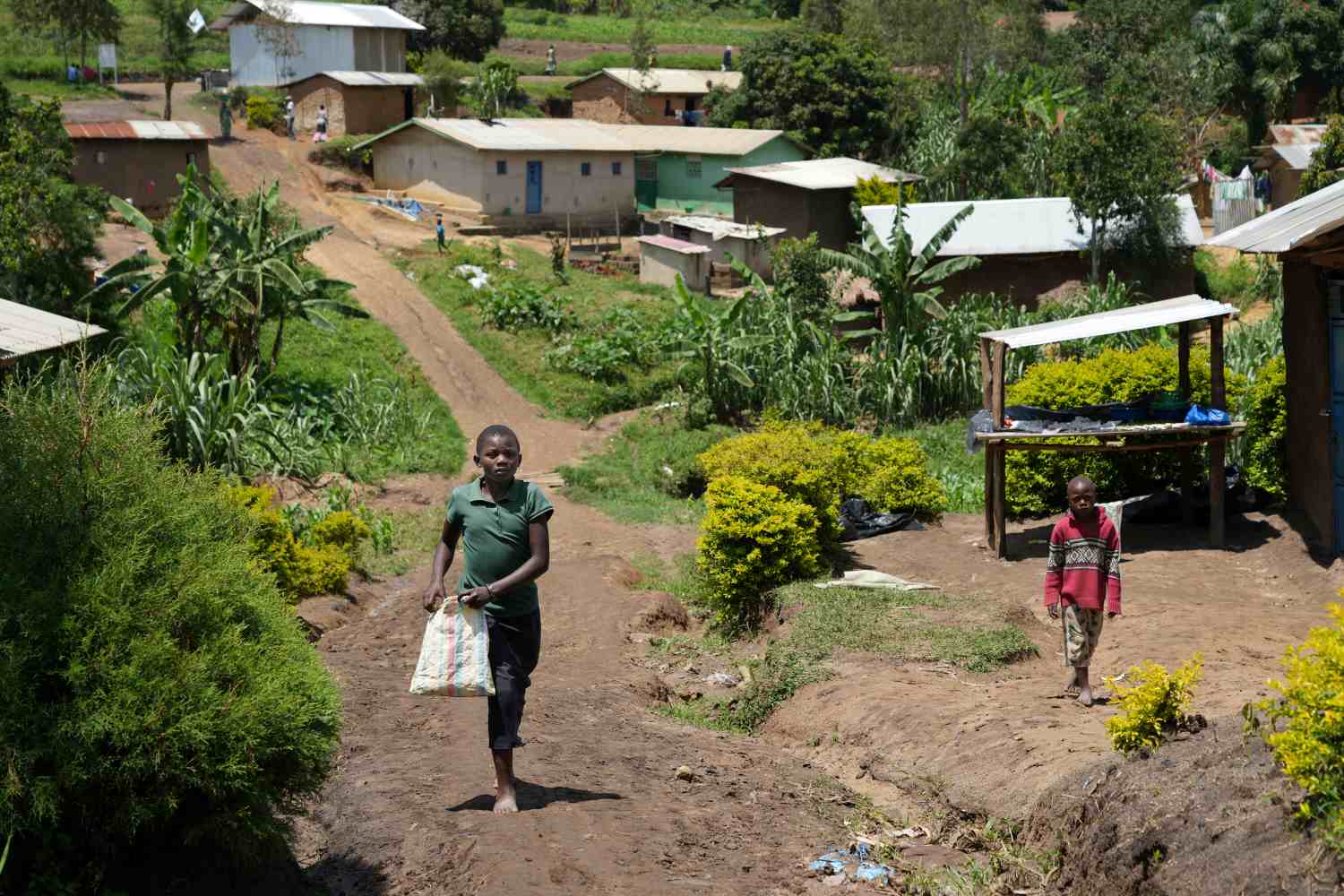
49 Christians killed in extremist attacks in DRC
In the past few weeks, at least 49 Christians have been killed in the Democratic Republic of the Congo (DRC) as extremist forces attack communities in the Beni territory.
On the evening of July 24, the extremist group Allied Democratic Forces carried out three simultaneous attacks on the villages of Mangambo, Katerrain and Kotaokola.
Open Doors sources say the attacks began simultaneously around 7:30 pm, leaving at least 50 individuals dead. Our local partners were able to identify 31 of them as Christians.
Then on August 10, at least 18 more people were killed in the villages of Mukoni and Bayeti. Four houses and two motorcycles were burnt and another 14 people reported missing.
"Christians are forced to flee and some churches in the affected villages have closed as a result of the latest attacks. We call on the international community to do everything in its power to ensure the Government of DRC faithfully and transparently protects all affected communities and that the displaced receive the support they need in these circumstances."
Open Doors spokesperson for the work in Sub-Saharan Africa
Defense Post reports that local authorities in Beni said in June that 150 people had been killed that month alone in attacks attributed to the ADF in eastern DRC. These attacks have caused mass displacement of Christians to safer areas.
Earlier this year the UN’s OCHA shared that since the beginning of 2024, 738,000 people have been displaced in the DRC, bringing the total number of displaced persons to 7.2 million. More than 80 percent of these are due to armed attacks and clashes.
An Open Doors spokesperson said “Countless communities in eastern DRC are in a state of perpetual conflict. The situation that Christians in eastern DRC are in is horrifying. Christians are forced to flee and some churches in the affected villages have closed as a result of the latest attacks. We call on the international community to do everything in its power to ensure the Government of DRC faithfully and transparently protects all affected communities and that the displaced receive the support they need in these circumstances.”
The DRC sits at number 41 on the 2024 World Watch List, the ranking of the most persecuted countries on earth.
Pray
Please be in prayer for the church in the DRC.
- Pray for the strength and faith of Christians who have lost loved ones and are now internally displaced, that the Lord’s mighty hand will be their shield and He will comfort and provide for them.
- Pray for emotional healing for all Christians that have been impacted by recent attacks in eastern DRC.
- Pray for the faith and the growth of the Church amidst the chaos, that God mighty in battle will protect His house and his works will prevail.
- Pray for peace and security in the DRC and for the Lord to lead the military in ending conflicts in the country.

Moroccan Christian Loses His Family
Elmahdi was devoted to his family, even though they followed different religions – but he found himself a victim of Moroccan courts.
Elmahdi lives in Casablanca, Morocco. Formerly a devout Muslim, he now follows Jesus—and is facing an involuntary divorce. He has two daughters and a son with his ex-wife, and at one time envisioned a life of happiness with his beloved wife, and never desired separation.
But his life changed when he encountered Christianity. He was moved by the divine commandments and extraordinary life of Christ. Driven by a blend of curiosity and a quest for truth, Elmahdi sought answers, ultimately finding solace in Christ. His conversion to Christianity culminated in baptism.
Since 2019, Elmahdi has actively participated in ministry work in Casablanca. But his steadfast faith has led to significant challenges. At first he refrained from sharing his newfound faith with his wife, anticipating her reaction due to her strict adherence to Islam, as well as her family’s devout beliefs. Aware that revealing his Christian faith could lead to conflict and family pressure, Elmahdi chose to conceal his religious convictions. But the secret could not be kept forever, and eventually his wife discovered his conversion.
When she confronted Elmahdi, he did not deny his faith, but he did clarify that his religious beliefs were deeply personal. He emphasized that he had no intentions of imposing his beliefs on her or compelling her to convert. He expressed his profound love for her and his desire to preserve their marriage, emphasizing her importance as the woman he had chosen to spend his life with.
Under Moroccan law, when a husband converts away from Islam, divorce settlements usually favour the mother – but Elmhadi’s situation is uncommonly strict.
As a traditional Muslim woman, she asserted that she couldn’t cohabit with an individual of a different faith under the same roof. She presented Elmahdi with an ultimatum: revert to Islam or divorce.
When he refused to give up his faith, she initiated legal proceedings for divorce. Under Moroccan law, the woman typically receives support in such cases and custody of children typically defaults to the mother if the husband converts to a different religion.
However, Elmahdi’s situation is uncommon because he is fully prohibited from seeing his children. Since 2022, he has been grappling with this incredibly difficult situation. He occasionally finds himself stung by thoughts of reverting to Islam due to his longing for his children.
However, Elmahdi’s unwavering faith, love and reliance on Christ serve as a shield against succumbing to these temptations. Though the consequences are so hard, Elmahdi understands that his commitment to Christ transcends his familial ties and responsibilities. In following the path of Christ (Matt. 16:24), Elmahdi recognizes the call to forsake his own desires and submit entirely to the Lord’s will, and that obedience requires a willingness to relinquish his own desires and endure hardships for the sake of his faith.
Pray
Elmahdi has received substantial support and daily interaction from the church he joined in 2019, but things remain difficult. Will you pray today for Elmahdi? Ask God to help him remain steadfast in his faith and for a chance to be reunited with his children. Pray that even following a divorce, his life would remain a testimony for Christ to his wife.
Please note that for security reasons the name and image used here are representative only.
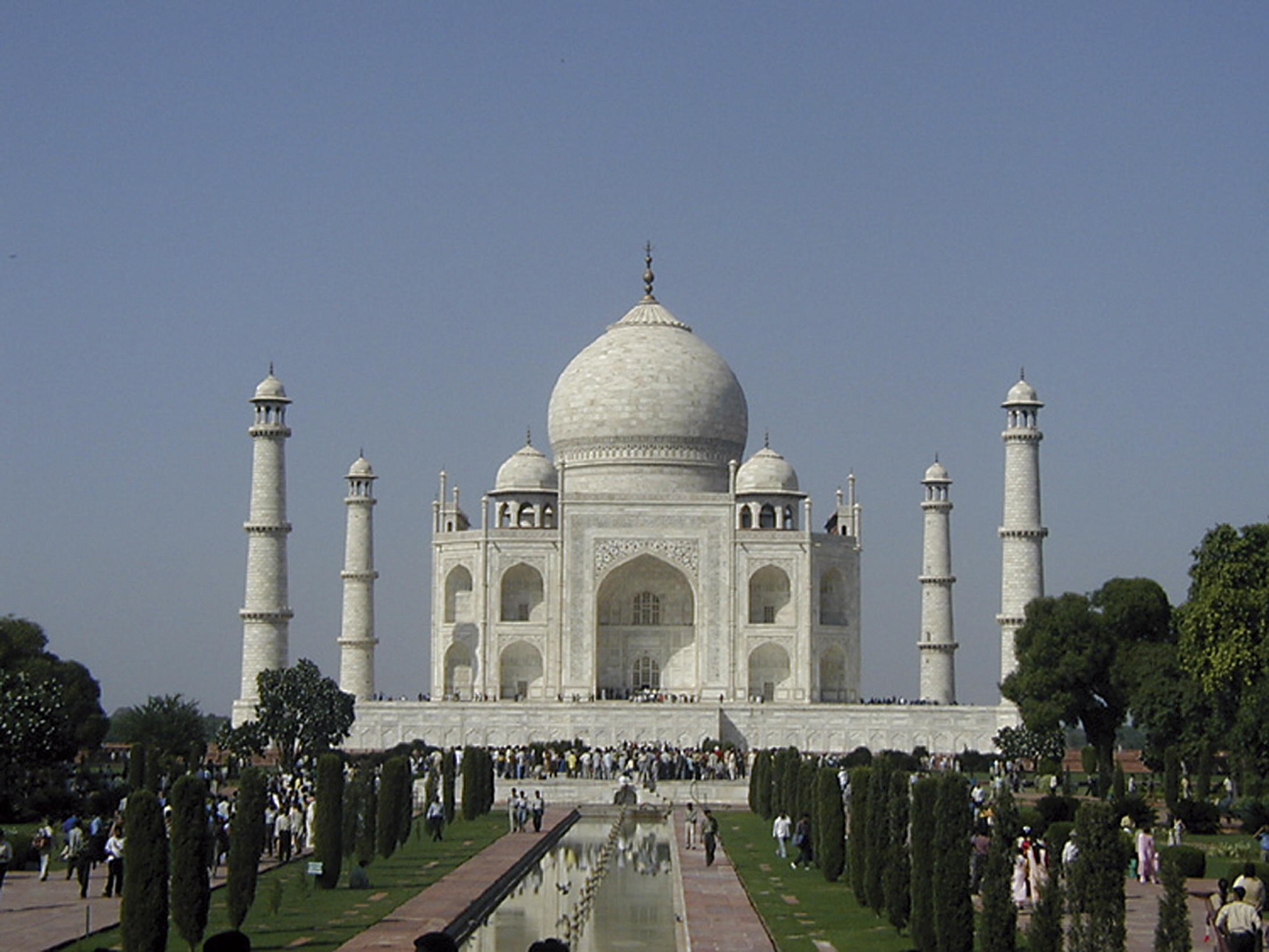
Christians Arrested as Anti-Conversion Laws Increase in India
Over a dozen Christians were arrested on charges of conversion activities in the state of Uttar Pradesh, India, in the last two months as the High Court rules that religious conversion is unconstitutional.
Throughout the month of June, at least twelve Christians were arrested across the state. The arrests included two pastors.
Most of them seem to have been arrested while in house prayer meetings, having been reported to police by local villagers, reports UCAN.
In July, the Allahabad High Court in Uttar Pradesh ruled that conversions at religious gatherings could lead to the majority population of India becoming a minority. “Such religious congregations should be immediately stopped where the conversion is taking place and changing religion of citizens of India”, the Court said.
Uttar Pradesh is one of India’s 11 states with an anti-conversion law, prohibiting any attempt to force someone to convert to another religion (other than Hinduism) through misrepresentation, force, undue influence, coercion, allurement or by fraudulent means.
However, research has shown that the majority of police reports are based on complaints by Hindutva (Hindu nationalist) groups to target Christians.
According to local Christians and Open Doors’ partners, the reason for the increase in arrests is because the governing Bharatiya Janata Party (BJP) lost significantly in recent elections, something both the party and radical Hindu groups did not expect. “A revengeful drive has led to increased atrocities against Christians and other religious minorities”, one partner said. “The anti-conversion laws are misused and Christians are arrested on false charges.”
In recent years anti-conversion laws have been used by BJP supporters to settle personal scores and promote a Hindu nationalist agenda.
Rajasthan could become the 12th state to implement such laws, as the government has said such plans are in place. Local sources tell Open Doors that with BJP leader Bhajan Lal Sharma as the state’s Chief Minister, the bill could be implemented soon.
Protests against attacks
Meanwhile, tribal Christians in Chhattisgarh state took to the street in June to protest against violent attacks by militant Hindu groups. They walked in silence while holding placards reading “We will not tolerate insults in the name of religion” and “Stop violence against Christians”.
Chhattisgarh has a sizable community of tribal Christians, approximately 30% of the population, and Hindu nationalist groups are pressuring them into converting back to Hinduism.
In February the state’s government announced its intention to tighten its anti-conversion law.
Near the end of 2022, more than 1000 tribal Christians were forced from their homes after a series of violent attacks on their villages.
India ranks at number 11 on the 2024 World Watch List.
Pray
Please be in prayer for Christians in India who are fearing for their safety as anti-conversion laws are tightening.
- Pray that all those who have been arrested will be freed with no complications.
- Pray that India’s government would move away from anti-conversion laws
- Pray that Christians would maintain a positive testimony within the nation.
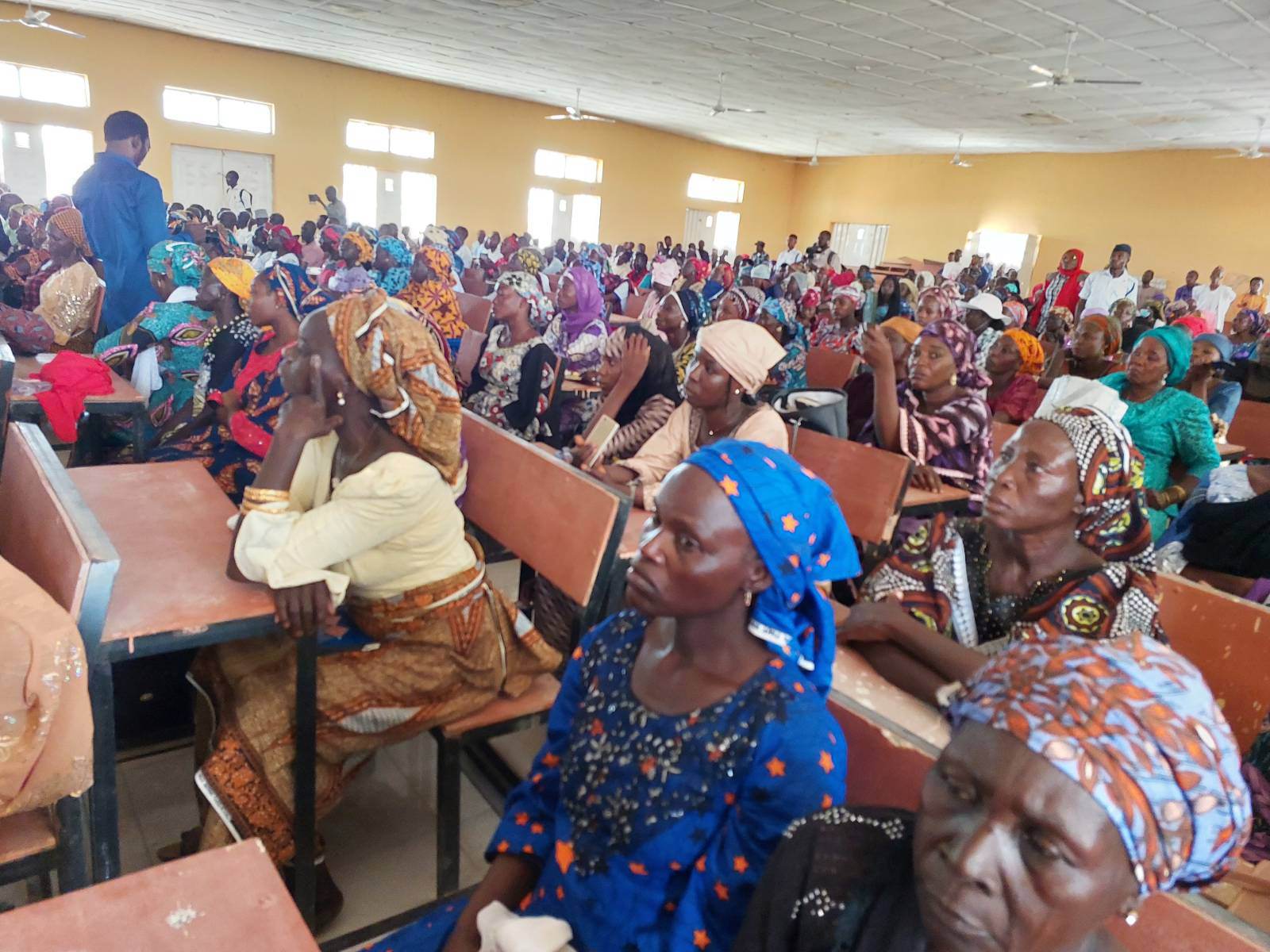
More than 300 Captives Freed From Boko Haram
Over 300 captives, mainly women and children, were freed from Boko Haram in July.
We give thanks to God that 331 people have been rescued from Boko Haram in Sambisa forest. Among them is Ihyi Abdul, one of the Chibok girls, and her three children.
According to Nigerian news the military handed over 331 people who were rescued from Sambisa forest to the Borno State Governor. This rescue was part of an ongoing initiative in the north-east called Operation Hadin Kai (OPHK).
Ihyi Abdul, now 27 years old, shared in a statement that she walked for days before reaching a military checkpoint “where they took me and my children in”. She continued by giving a glimpse into what life inside Boko Haram camps look like for women, sharing: “I married eight men and gave birth to three children for different husbands.”
“The plight of the remaining Chibok girls still in captivity necessitated the conduct of military operations deep into the terrorists’ enclaves with the aim of facilitating their release,” Brig. Gen. Abubakar Haruna said, promising that “OPHK will continue to do its best to rescue the remaining Chibok girls in line with the strategic guidance of the Chief of Defence Staff, Gen. Christopher Musa, and Chief of Army Staff, Lt. Gen. Taoreed Lagbaja.”
A spokesperson for Open Doors field work in Sub-Saharan Africa said “We are thankful for the rescue of Boko Haram abductees. The international community should urge the Nigerian Government to continue its efforts to liberate the hostages held by Boko Haram, including Leah Sharibu and all Chibok girls who remain in captivity.
“We extent our deepest appreciation to the many Open Doors supporters and the Body of Christ across the globe who persevere in prayer for those who have been kidnapped. This is the request that we receive from parents and families of those who have been kidnapped over and over – ‘please do not stop praying for us, for our children and our families. Pray that we will be reunited with them again in this life’.”
It is not clear how many of the freed captives are Christians and how many are Muslims, but we are equally thankful for everyone’s safe return.
Nigeria ranks number 6 on the most persecuted countries in the world.
Photo: Families of Chibok girls gather earlier this year to mark the tenth anniversary of their kidnapping.

Pastor in Laos shot and killed
Pastor Thongkham Philavanh of Laos, 42, was shot and killed by two masked men in the evening of July 23rd. A Khmu ethnic pastor and evangelical church leader in the northwestern part of Laos, Philavanh courageously shared and lived out the gospel. He leaves behind his wife Sengdala and their two teenage children.
Pastor Thongkham succeeded his father-in-law, who was imprisoned for 13 years because of his faith, in leading their church in the province. Thongkam and his wife have also helped plant house churches in their area, which have grown exponentially in just a matter of few years. The couple is known for their love for the young people, many of whom call them dad and mom. They would usually gather young people at church or in their house for discipleship or Bible studies.
Because of their gospel work among the locals, Thongkham and Sengdala had been warned by authorities in several instances to stop their Christian activities. On one occasion, they were summoned by the police and asked to sign a document renouncing their faith. But the village chief intervened and defended the couple, calling them role models in the community.
In the evening of July 23, two men wearing masks parked a motorbike in front of Thongkham and Sengdala’s home. They asked for the pastor’s whereabouts from some children who were by the entryway of the house, which Thongkham overheard. He went out front and greeted the visitors. They proceeded to shoot him six times.
Sengdala was able to drive her husband to the hospital, but he was declared dead on arrival.
Although the case is still under investigation, Sengdala and her family believe that the murder is religiously motivated. She shared that for the past year, Thongkham had been telling his wife to be prepared as he knew his life was in danger. “He kept most of the burdens to himself because he wanted to protect us. He sacrificed himself to protect his family.”
Open Doors partners were able to attend the funeral, along with hundreds of people who were impacted by Thongkham’s life.
Pray
Please be in prayer for Sengdala and her two children. Ask the Lord to give them comfort, protection, and courage in their faith.

